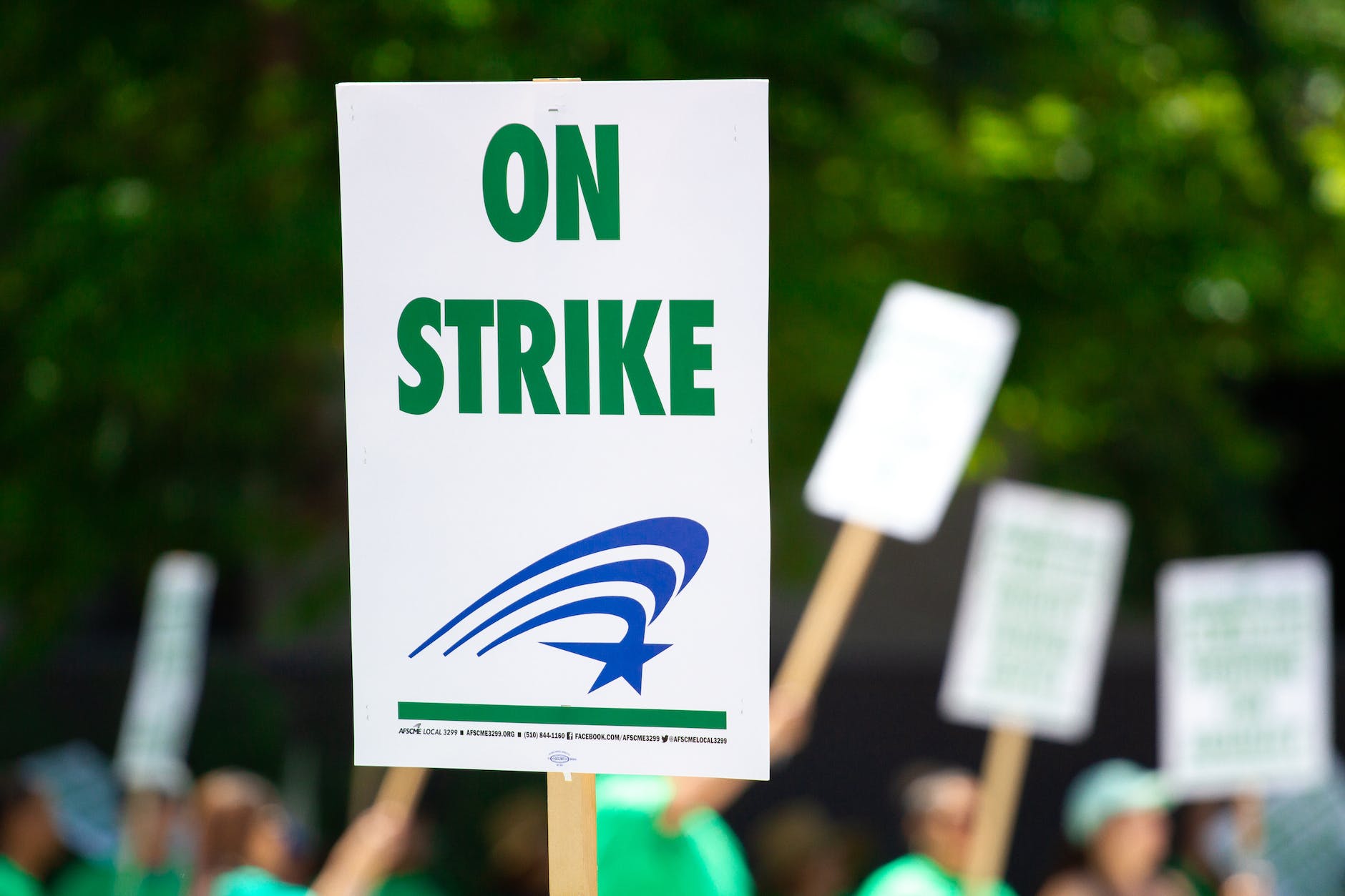Once again, the entertainment industry finds itself embroiled in a relentless clash for creative rights and the just treatment of its professionals. In the mighty year of 2023, the Screen Actors Guild (SAG) and Writer’s Guild of America (WGA) are striking for improved wages, improved working environments, and artistic freedom. Brace yourselves as this article delves into the history, motives, and reverberations of the current SAG and Writer’s Strike, casting a spotlight on the formidable obstacles the valiant actors and scribblers face in their valiant quest for a more balanced realm.
I. An Overview of the Screen Actors Guild (SAG) and Its Significance:
The Screen Actors Guild (SAG) is a prominent labor union representing actors, announcers, and other performers in the United States. It plays a crucial role in negotiating and enforcing collective bargaining agreements to safeguard the rights and interests of its members. SAG’s long-standing history has been marked by numerous battles fought on behalf of actors, with each conflict shaping the industry’s landscape.
II. The Role of Writers in the Entertainment Industry:
Writers are the unsung heroes behind the captivating stories and memorable characters that grace our screens. Their work lays the foundation for movies, TV shows, and plays, making them essential contributors to the entertainment industry. However, writers often face challenges such as fair compensation, creative autonomy, and credit attribution, which are integral to fostering a thriving creative ecosystem.
III. Catalysts for the Current SAG and Writer’s Strike:
The current SAG and Writer’s Strike in 2023 is driven by several key factors. Firstly, the rapid expansion of streaming platforms and the increasing demand for original content has significantly shifted the industry’s landscape. Secondly, global entertainment conglomerates’ rise and influence on production budgets, profit-sharing models, and creative decision-making have also contributed to the tensions between creatives and industry stakeholders.
IV. Key Issues and Demands:
In the current strike, actors and writers have brought forth specific demands to address their challenges. Writers are seeking fair compensation and profit-sharing models that account for the increased value of their work in the digital age. Additionally, they are advocating for greater creative control over their projects and fair representation in decision-making processes. On the other hand, actors are demanding improved working conditions, equitable pay, and improved health and safety protocols on set.
V. Impacts on the Entertainment Industry:
The current SAG and Writer’s Strike have far-reaching consequences for the entertainment industry. Production schedules are disrupted, resulting in delayed releases and financial losses for studios and networks. Audiences are left waiting for their favorite shows and films, and the absence of new content affects streaming platforms, broadcast networks, and theaters alike. The strike also sheds light on the power imbalance within the industry and the need for systemic change.
VI. The Journey Towards Resolution:
As negotiations continue, industry professionals, including actors, writers, and producers, are engaged in intense discussions to find a resolution. Both sides understand the importance of reaching an agreement addressing the striking individuals’ core concerns. Mediation, compromise, and the shared desire to create a fair and sustainable industry are essential elements in the journey toward resolution.
VII. Lasting Effects and Lessons Learned:
The current SAG and Writer’s Strike serve as a turning point in the ongoing fight for fair treatment, creative rights, and just compensation in the entertainment industry. It highlights the urgency for reforms to outdated labor agreements and establishes the need to adapt to the ever-evolving digital landscape. The strike underscores the power of collective action and solidarity among industry professionals, prompting a broader discussion about the future of work in the creative sector.
Conclusion:
The current 2023 SAG and Writer’s Strike demonstrate that the battle for creative rights and fair treatment in the entertainment industry is far from over. Actors and writers continue to fight for equitable compensation, improved working conditions, and creative control. This strike serves as a reminder that progress requires sustained efforts from all stakeholders to create a more just and sustainable industry. As audiences, we should support the voices of these creatives, recognizing their invaluable contributions and advocating for an industry that values and respects the rights and well-being of all its professionals.



























